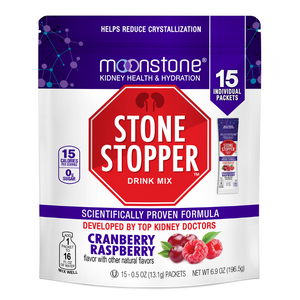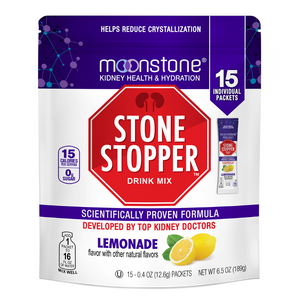Kidney stones are a painful reality for millions of people, causing agonizing pain and disrupting daily life. But are kidney stones genetic?
Research shows that genetics plays a role in predisposing people to kidney stones and that a family history of kidney stones increases your likelihood of developing them. This genetic predisposition can influence how the kidneys process and excrete substances such as calcium and oxalate, which are key components in the formation of stones. However, genetics alone does not determine the entire picture. Lifestyle, diet, and medical conditions also contribute to kidney stone formation. For instance, dehydration, diets high in oxalate-rich foods (like spinach and chocolate), and medical conditions such as hyperparathyroidism can increase your risk, regardless of genetic predisposition.

While genetics can predispose you to kidney stones, a proactive approach can help manage kidney stone risk. Prevention is crucial in managing kidney stone risk, whether genetic or otherwise. This is where Moonstone Stone Stopper can help. Developed by urologists and nephrologists, Stone Stopper is a patented formula delivering 30 mEq of alkali citrates per serving. Alkali citrate is known to prevent the crystallization of kidney stones by making the urine less acidic, thereby reducing the likelihood of stone formation. Stone Stopper works by increasing urine pH (alkalizing), which makes the urine inhospitable to stone formation.
Proactive measures such as dietary changes and daily supplementing with Stone Stopper can significantly reduce your risk. Understanding the interplay between genetics, lifestyle factors, and preventive measures empowers you to take control of your kidney health and reduce the likelihood of painful kidney stones.





